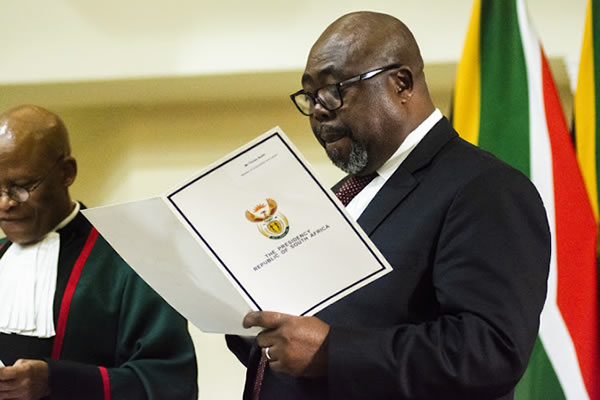New SA labour law makes it difficult for companies to employ Zimbabweans

South Africa’s Employment and Labour Minister Thulas Nxesi has published the Draft National Labour Migration Policy and Employment Services Amendment Bill for public comment.
Employers who rely on foreign nationals as part of their workforce are encouraged to familiarise themselves with the proposed new laws, which may make it more difficult to employ foreigners in future, say legal experts at law firm Bowmans.

The bill and the draft policy were developed to provide the legal foundation and framework within which to regulate the employment of foreigners while at the same time providing for their protection.
One of the key takeaways from the bill and the draft policy is that the Department of Employment and Labour will take a more active role in matters relating to the employment of foreigners as well as the emigration of South Africans seeking employment abroad, Bowmans said.
Stricter requirements
The Bill is intended to amend the Employment Services Act, 2014 to, among others, more strictly regulate the employment of foreigners in South Africa by inserting a new Chapter 3A which will impose the following duties on an employer employing foreign nationals:
- To ensure that the foreign nationals are entitled to work in South Africa and perform the work for which they are employed;
- Before recruiting a foreign national, to take steps to satisfy themselves that there is no one in South Africa, other than foreign nationals, with the requisite skills to fill the vacancy;
- To prepare a skills transfer plan in respect of any position in which a foreign national is employed;
- To employ foreign nationals on terms and conditions that are not inferior to the terms and conditions that would be provided to a South African citizen, permanent resident or refugee; and
- To retain copies of all documents that reflect that the foreign national is lawfully entitled to be employed in South Africa.
Quota system
The bill also empowers the minister, by way of notice, to set the maximum quotas for the employment of foreign nationals in any sector.
The notice, to be published in the Government Gazette, must specify the period within which existing, and newly established, employers must comply with the quotas. Small employers are, however, exempt from the quotas.
The bill provides for exceptions to the maximum quotas and allows an employer to employ more foreign nationals if:
- A foreign national is employed to fill a position in respect of which critical skills are required (as determined in accordance with the provisions of the Immigration Act, 2002); or
- The employer has applied for an exemption from the applicable quota in the prescribed form, and the exemption has been granted by the Minister.
“Any person who employs or engages an employee or worker in contravention of the Act may be liable for a fine,” Bowmans said.
“In addition to this, an employee or worker is entitled to enforce any claim s/he may have against the employer or any person who is otherwise liable in terms of any statute, collective agreement or the agreement entered into between the parties. The claim may also be enforced on behalf of an employee or worker by a labour inspector or bargaining council agent.”
Digital platforms
The bill also seeks to expand the scope of the Act to cover both employees and ‘workers’ and introduces the concept of a ‘digital labour platform’ which is ‘an electronic entity that enables the provision of work or services by a person to any other person in the Republic’.
In terms of the bill, for purposes of the Act, a digital labour platform is an employer and any person who provides work or services in the Republic to another person by means of a digital labour platform is a worker if:
- The payment for, or terms and conditions of, such work or services are determined by the digital labour platform; and
- The digital labour platform remunerates the worker.
“The intention behind these amendments appears to be to ensure that the Act applies to ‘platform workers’, such as Uber drivers.”
“The proposed amendments to the Act raise some complex issues and are already receiving strong opposition from certain groups,” Bowmans said.
Commentary by Chloё Loubser and Rosalind Davey of law firm Bowmans. – Work In South Africa




